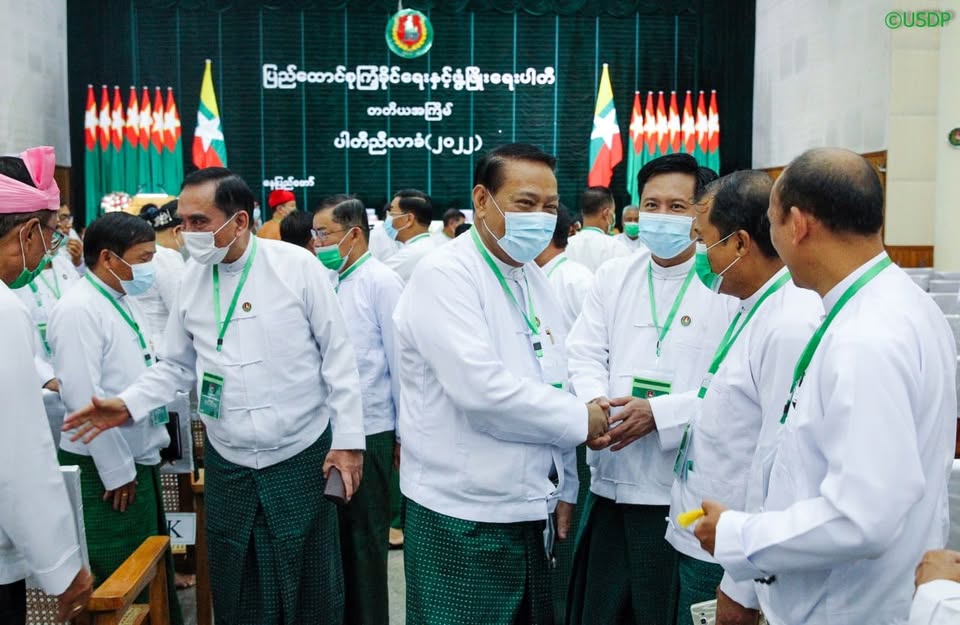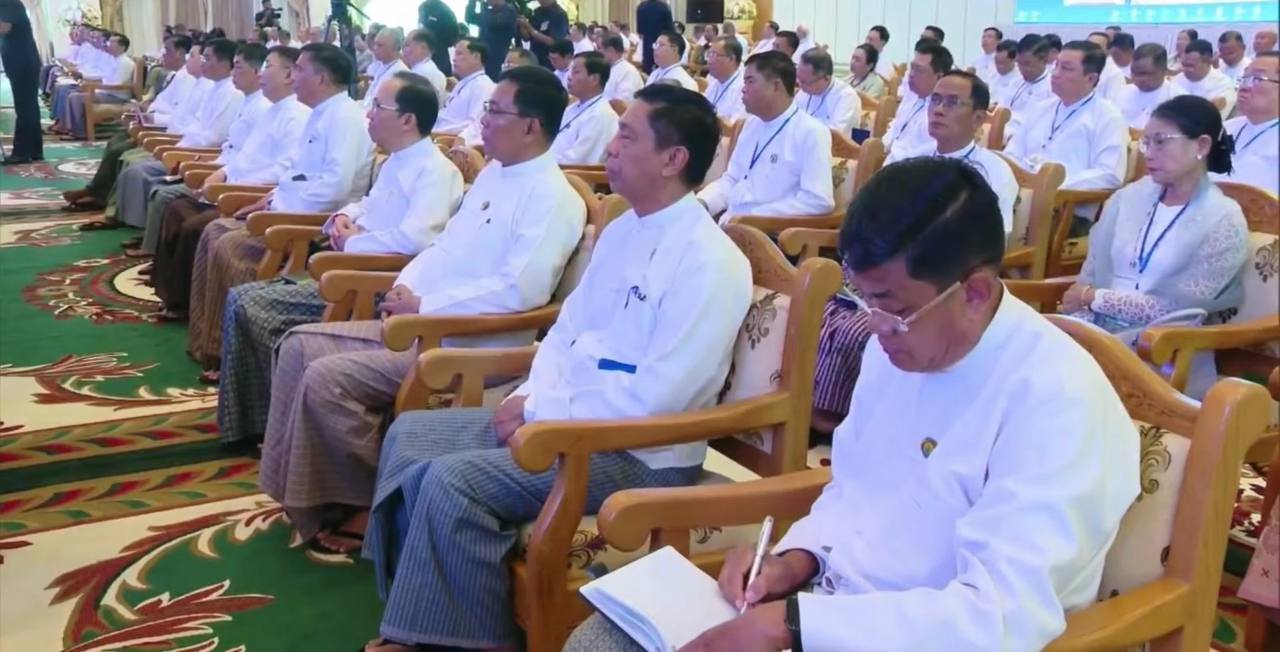CNI News
23 September 2025
Analysts are commenting on what kind of system the military is trying to implement — and what unusual developments may arise — as the Tatmadaw sends representatives to the Union Solidarity and Development Party (USDP) to compete in the elections.
ieutena This month, Commander-in-Chief Senior General Min Aung Hlaing dispatched retired generals, Lieutenant Generals, senior commanders, and even former civilian ministers to the USDP to contest the upcoming elections.
Colonel Khun Okkar, Chairman of the Pa-O National Liberation Organization (PNLO), which signed the NCA, told CNI News that the influx of military figures into USDP looks more like an order-driven transfer than free choice:
“I don’t think they joined the USDP of their own free will. They are ordered by the military — once retired, they are assigned duties in the party. If the USDP wins the election, the new parliament and government will also be filled with military men. This looks like prearranged planning. It’s an order-based transfer into the party. In the past, Senior General Than Shwe and Vice Senior General Maung Aye quietly retired, giving parliament to General Shwe Mann and the presidency to General Thein Sein. It was a clever division of roles, which enabled them to rule for five years. This time, however, it seems different. The top commanders don’t appear willing to retire. They themselves may want to take positions where possible. So we can’t predict what kind of system they’ll shape, but it does look worrying.”

USDP party members
Senior General Than Shwe drafted the 2008 Constitution in a way that guaranteed continuous military participation in politics. He retired senior generals and sent them to the USDP to contest the 2010 general elections.
Subsequently, retired General Thein Sein led the USDP to form a government, while Min Aung Hlaing was promoted to Commander-in-Chief, and Than Shwe and Maung Aye stepped down.
According to Dr. Nyo Nyo Thin, Chairperson of the Yangon Watch Group, the Tatmadaw prefers USDP candidates because they believe military men obey orders more than civilians:
“When you study the Tatmadaw, you find they have less trust in civilians. They believe their own officers have stronger discipline, better obedience, and are more capable. So they trust representatives emerging from the USDP more in terms of loyalty. I think they are preparing to control parliament systematically. Traditionally, when military officers retire, they go to USDP. The military and USDP are essentially one and the same — and the public widely believes this. Looking at the USDP's foundation, it was created by generals. The Tatmadaw has no sign of relying on any other civilian-led party. So naturally, they stick with the USDP.”

Government ministers
U Than Shwe originally founded the Union Solidarity and Development Association (USDA) in 1993 as a social organization. But by 2010, ahead of the elections, he converted it into the USDP, retired generals into it, and had them contest the polls.
In the 2015 elections too, the Tatmadaw dispatched retired generals to the USDP. Reports now indicate that Senior General Min Aung Hlaing is preparing a similar move for the 2025 general election.
According to sources, senior figures recently sent to the USDP include retired generals such as Aung Lin Dwe, Tin Aung San, Myat Tun Oo, Lt-Gen Kan Myint Than, Lt-Gen Phone Myat, Lt. Gen. Thet Pon, Lt. Gen. Teza Kyaw, Lt. Gen. Lin Aung, Lt. Gen. Soe Tint Naing, and Maj-Gen Zaw Naing Oo, along with some former government ministers.
Myanmar’s 2025 elections are scheduled to begin in 102 townships on December 28, 2025 (Phase 1), with the remaining constituencies to follow in January 2026.




